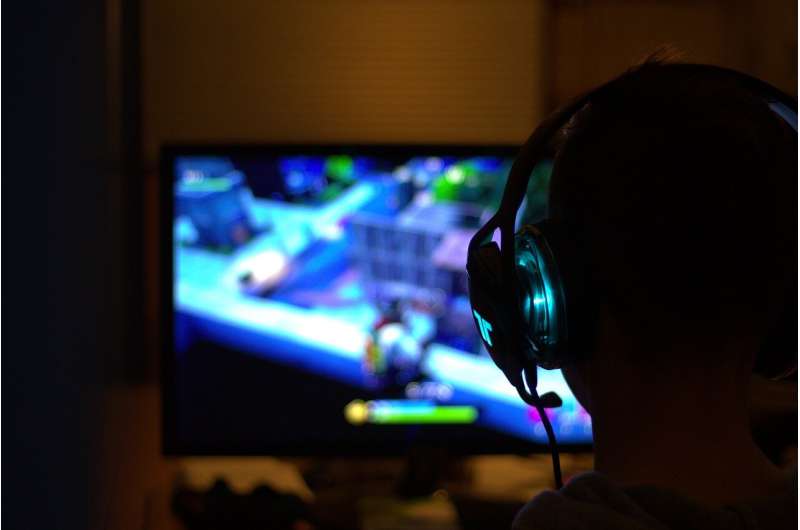Credit: Pixabay
Providing parents with the tools to intervene in their child or adolescent's gaming addiction could prove to be an effective way to help people who refuse direct treatment, say Flinders University experts.
"Online video gaming is a popular activity among people of all ages with many positive benefits but for a very small group their gaming can become problematic and impact their mental and physical health," says Ben Riley, Flinders University Ph.D. Candidate in the College of Medicine and Public Health and clinician with the Statewide Gambling Therapy Service.
"Previous research has shown cognitive behavioral therapy for gaming disorder can be an effective treatment but many people, especially adolescent males, are often reluctant to seek help and consistently engage with mental health practitioners."
Reporting on an anonymised case in the Journal of Family Therapy, the team describe a 19-year-old South Australian man who was gaming for up to 14 hours a day, had become disengaged with family and friends, and following a suicide attempt was referred to mental health services.
However, after the man stopped engaging with treatment and shut off communication, the team turned to his mother, who expressed a willingness to implement a treatment plan.
"Assisting family members to help their loved ones isn't a new idea, with the model developed by Flinders researchers over 20 years ago to help the families of heavy drinkers, so it made sense it was possible in this scenario," says Mr. Riley, lead author of the case study.
In this case study, the young man's mother was supported via telehealth appointments to implement a treatment plan that would encourage her son to gradually reduce his gaming by rewarding him once he had completed basic tasks such as showering, room cleaning or, later on in the program, spending time outside.
Through the use of an individual circuit breaker to the young man's room, the family was able to encourage desired behavior by switching the power off and then back on as a reward when certain tasks were completed.
After two months of treatment, the mother was able to report a significant change in her son's behavior and reduction in gaming, with long term follow-ups finding the young man was able to move out of home and gain employment.
"What we often find when we speak to family members is that they have tried similar tactics in the past but without professional support they expect change to happen quickly and all at once, so it is quickly abandoned," says Mr. Riley.
"By implementing a structured program, we can help people start out slowly, adjust the treatment at the optimal time and provide support and encouragement at all stages, just as we would if we were treating the patient directly."
The researchers say while it's only a single case, it illustrates the potential to provide support for families experiencing similar problems concerning problem gaming.
"There are a number of limitations to the study, such as not having insights into the young man's state of mind throughout the treatment, or long-term follow-up beyond the initial six months, but it's success provides a strong starting point for clinicians to consider," says Mr. Riley.
More information: Ben J. Riley et al, Parent‐delivered contingency management for a treatment‐refusing young adult with gaming disorder: Case report, Journal of Family Therapy (2022). DOI: 10.1111/1467-6427.12381
Provided by Flinders University
























